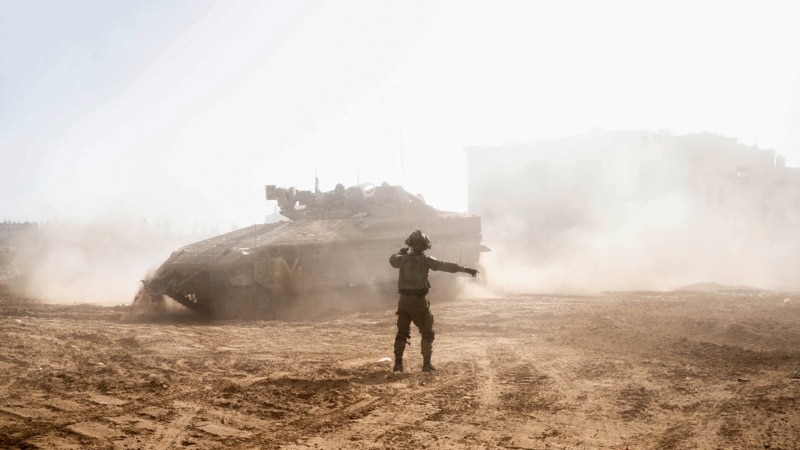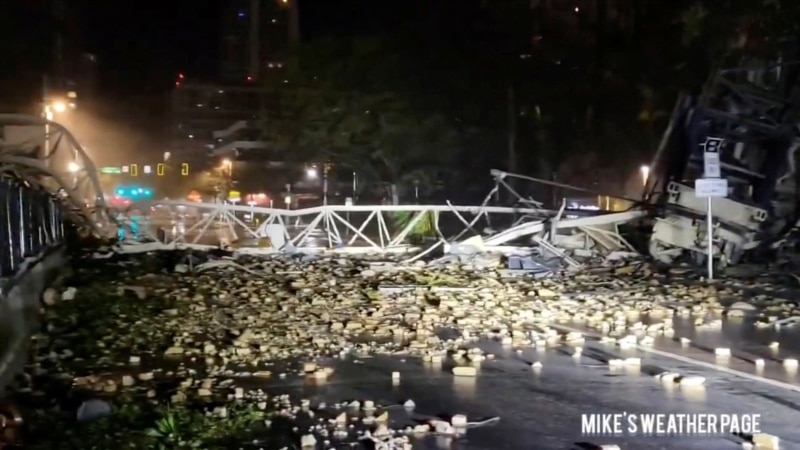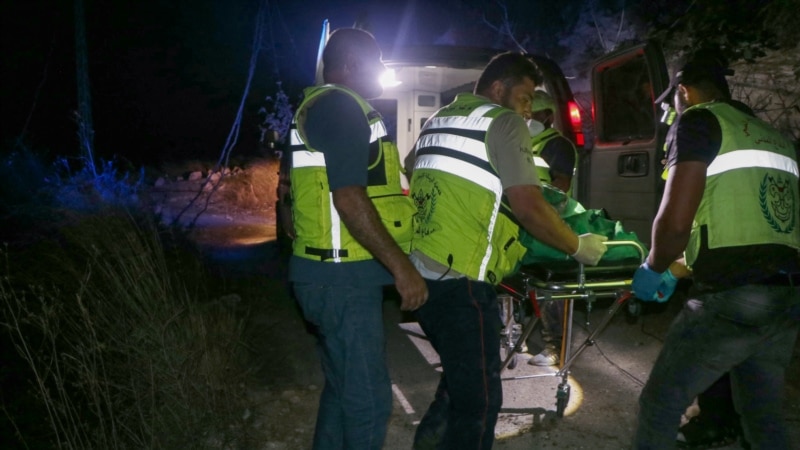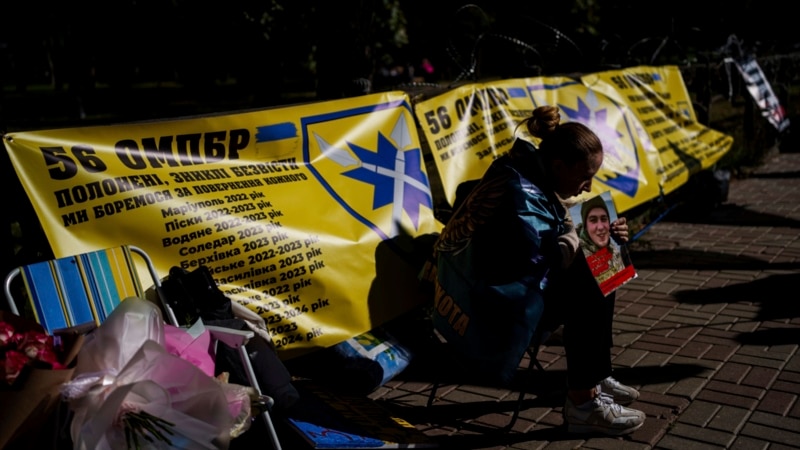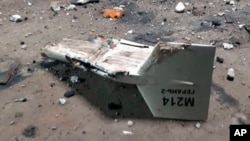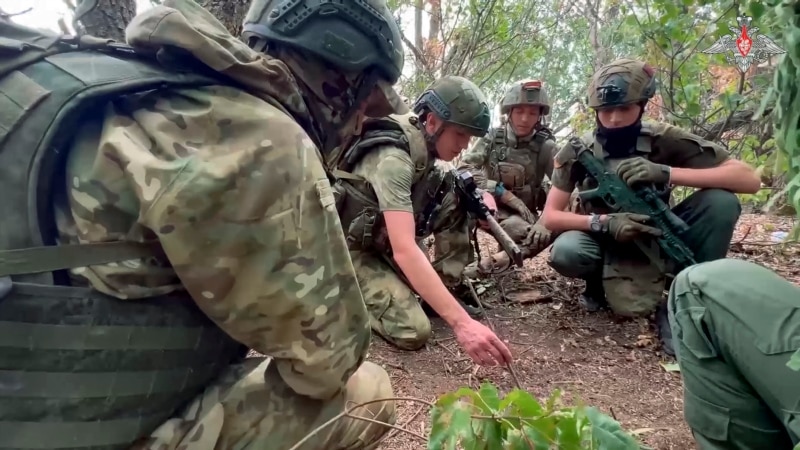Amid an international push for a new, temporary cease-fire in the Gaza Strip, Israeli forces carried out airstrikes Wednesday in northern and southern Gaza.
The Israeli attacks included Gaza City, where the military said it also killed 15 militants during ground operations.
In Khan Younis, the main city in southern Gaza, witnesses reported heavy fighting in addition to numerous airstrikes.
The Hamas-run health ministry in Gaza said the number of people killed in Israel’s counteroffensive had risen to 26,900, a figure that includes both civilians and militants.
Hamas leader Ismail Haniyeh was expected to travel to Cairo to discuss the cease-fire proposal, which would include both a halt in fighting in Gaza and the release of hostages held by Hamas.
Haniyeh said Tuesday that Hamas was studying the cease-fire plan and emphasized the militants’ long-time demand for a permanent cease-fire and an Israeli troop withdrawal from Gaza.
“The priority is ending the unjust aggression on Gaza and the complete withdrawal of the occupation’s forces,” Haniyeh said.
He also said Hamas was seeking the reconstruction of Gaza, much of which has been flattened during the Israeli counteroffensive following the October 7 Hamas attack on Israel that killed 1,200 people. Hamas also wants the lifting of a yearslong Israeli blockade on Gaza and the release of Palestinian prisoners held in Israel.
Israeli Prime Minister Benjamin Netanyahu said a full withdrawal from Gaza will not happen until Israel achieves all of its goals. Netanyahu has vowed to eliminate Hamas to ensure it cannot launch future attacks against Israel.
“We will not withdraw the Israeli military from the Gaza Strip and we will not release thousands of terrorists,” Netanyahu said.
The outline for a possible new agreement came out of talks in Paris among U.S., Israeli, Qatari and Egyptian officials.
“As Secretary [Antony] Blinken noted yesterday, the proposal on the table is strong and compelling,” U.S. Ambassador to the U.N. Linda Thomas-Greenfield told reporters Tuesday. “It envisions a longer humanitarian pause than we saw in November, which would provide an opportunity to get more hostages out and lifesaving humanitarian assistance in: food for the hungry child, medicine for the elderly woman in need, shelter for the family that has been displaced multiple times.”
More than 100 hostages were released during the weeklong November cease-fire in exchange for 240 Palestinians jailed by Israel. Hamas is believed to still be holding another 100 or so hostages.
West Bank attack
The U.N.’s human rights office called on Israel to immediately halt “the unlawful killing of Palestinians in the occupied West Bank,” after Israeli forces killed three people at a hospital in Jenin that Israel’s military identified as militants who were planning to carry out an attack.
A statement from the U.N. agency called the Israeli operation a “seemingly planned extrajudicial execution.”
The U.N. human rights office noted an increase in killings of Palestinians in the West Bank since October 7. About 370 Palestinians have been killed in the West Bank during that time, most of them by Israeli forces.
Michael Provence, who teaches modern Middle East history at the University of California San Diego, told VOA that the Israeli attack was “brazen, and certainly it’s a kind of an escalating move, but it’s not unprecedented” for Israel.
Provence said the attack also makes the cease-fire negotiations more difficult than they otherwise would have been.
Israel has accused Hamas of operating in hospitals and in tunnels underneath health facility sites to hide weapons and use civilians as shields.
Palestinian aid
U.N. Secretary-General Antonio Guterres met Tuesday with representatives from 35 donor states and the European Union after several major donor countries suspended financial assistance for the United Nations’ relief agency for Palestine refugees following Israeli allegations that a dozen UNRWA staffers may have been involved in the October 7 terror attack.
“We expect the secretary-general to brief member states on the actions taken on the allegations regarding some UNRWA staff, and we will, of course, listen to their concerns,” his spokesman Stephane Dujarric told reporters ahead of the talks. “The secretary-general will again underscore the importance of the humanitarian work that UNRWA does every day in Gaza and in the region.”
More than a dozen countries, including the top donor, the United States, announced suspensions of financial support to UNRWA while an investigation is carried out. UNRWA says the suspensions amount to $444 million in revenue.
U.S. State Department spokesperson Matthew Miller told reporters on Tuesday that about $300,000 is currently frozen in funds designated for UNRWA. Future funding this year would depend on the outcome of the investigation and steps taken at UNRWA.
“We need to see fundamental changes before we can resume providing funding directly to UNRWA,” Thomas-Greenfield told reporters. “And as you know, we shouldn’t let that cloud the great work that UNRWA does.”
Sigrid Kaag, the U.N.’s new senior humanitarian and reconstruction coordinator for Gaza, told reporters following her first meeting with the Security Council on Tuesday that currently, “There is no way any organization can replace or substitute the tremendous capacity, the fabric, of UNRWA, their ability and their knowledge of the population in Gaza.”
UNRWA employs 13,000 mainly Palestinian staff in Gaza. It has continued to work since October 7 to provide some relief to nearly 2 million displaced Palestinians. More than 150 UNRWA staff have been killed in the fighting between Israel and Hamas. But the U.N. says aid could soon be in jeopardy if funding is not resumed.
Of the dozen staffers implicated by Israel in the deadly attacks, the U.N. immediately fired nine of them, one was confirmed dead, and officials are clarifying the identity of two others. The U.N. immediately opened an internal investigation.
Israel has criticized UNRWA for years, alleging that the schools the agency operates have been used by Hamas for terrorist activities and that they promote an anti-Israel curriculum. Since the October 7 attacks, Israeli officials have accused some agency staffers of celebrating the attacks on social media.
Hamas has been designated a terrorist organization by the United States, United Kingdom, European Union and others.
UNRWA has provided basic services, including medical care and education, for Palestinian families who fled or were driven out of what is now Israel during the 1948 war surrounding the country’s creation. They now live in built-up refugee camps in Gaza, the Israeli-occupied West Bank, Jordan, Lebanon and Syria.
In Washington, a congressional subcommittee held a hearing on the agency’s work Tuesday.
Republican Representative Brian Mast accused UNRWA of directly and indirectly supporting “Hamas and other terrorist organizations in multiple different ways,” including allowing Hamas tunnels and rocket launchers under their schools and other facilities — a charge UNRWA has denied.
Democratic Representative Susan Wild agreed that the agency is facing an “unprecedented crisis of credibility,” but said it is important that the population of Gaza, which is in a dire humanitarian crisis, does not pay a steeper price because of the action of a dozen bad individuals.
Several protesters were in the hearing room, including from the group Code Pink, and shouted as the legislators spoke. Some protesters wore blue shirts that said, “Ceasefire Now” and held up their hands that were coated in a red substance meant to resemble blood.
VOA correspondent Margaret Besheer reported from the United Nations, and VOA’s Nike Ching contributed reporting from the State Department. Some information for this report was provided by The Associated Press, Agence France-Presse and Reuters.

